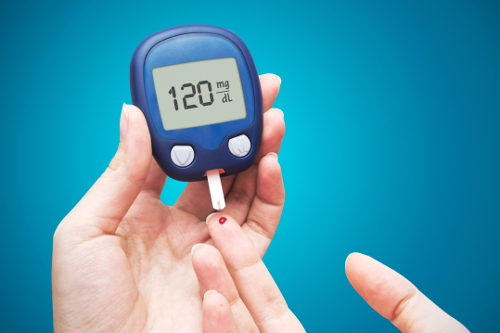
My friend and co-worker, let’s call him Paul, was a pretty active person in his younger years. He played basketball for his college and did the usual weekend hanging out – having a few beers with his buddies and taking his wife-to-be out on dates. Little did he know that twenty years later he would be smitten with a serious health condition that completely changed his life.
You see – Paul is a classic case of someone who had pre-diabetes and didn’t notice the signals. As a consequence today he is a full-blown diabetic who – first lost a toe, then a foot and eventually his leg – all due to diabetic nerve problems that went unnoticed years before.
Do you have these early signals of diabetes?
The early stages of diabetes, or pre-diabetes, can give off very subtle signals that will get progressively worse over time if left unchecked. There are over eighty million people with pre-diabetes and who don’t have a clue. Are you one of them? Here are some symptoms to look for:
- Blurry vision is an early sign of high blood sugar. As we get older our vision naturally declines but for some it may become more pronounce at an early age or you may be noticing it more often than usual. If your vision becomes blurry but clears up after a while and you notice this happening regularly then it’s time to consult visit with your healthcare provider. These sudden changes in vision can be an indication that your blood sugar is abnormal.
- Peeing more than normal – If you notice that you are urinating more often than normal – it maybe an indication that your blood sugar is high. If this condition persists then it’s time to talk to your doctor. You body is trying to get rid of this excess sugar through your urine so it pulls fluid from other parts to help expel sugar. Of course, you will become thirsty from a lack of fluid. This causes you to drink more and hence the excess peeing. Don’t confuse this kind of thirst with being dehydrated from working out.
- Persistent hunger can be an indication that you are becoming insulin resistance – your body is starving due to a lack of nourishment necessary for energy. Glucose is not getting into the cells of your body to energize it. Because of this some of us over eat and gain excess weight. If you notice the number on the scale going up exponentially this can be the start of pre-diabetes.
- Becoming insulin resistant has a host of negative implications. Because there is now excess sugar circulating through your body there are more chances of nerve damage occurring – damaged blood vessels in your eyes resulting in poor vision, men can start developing erectile dysfunction issues and women will not secrete enough lubrication for sexual activity, poor circulation to the extremities, as in the case of my coworker. There are many other problems that accompany insulin resistance but these are major ones.
- Other indications of early stage diabetes or pre-diabetes is itchy skin especially around the genitals which is mainly due to dry skin.
- Difficulty hearing due to sugar imbalance affecting the nerves of your inner ear.
- Irregular sleeping pattern leading to tiredness during the your wake stage. If your sleep is disturbed by such things as getting up too often to urinate or sleep apnea, it may be a sign of excess blood sugar.
Risk factors of pre-diabetes
A major impact on developing pre-diabetes is if you belong to a high risk group. Although risk factors are not symptoms of pre-diabetes we must be mindful of them because they can indicate the likelihood of developing symptoms.
Risk factors include having a family history of diabetes, being overweight, belong to certain ethnic groups, older adult (past age of 40), inactive lifestyle. If you belong to any of these groups then your chances of developing pre-diabetes goes up.
What to do if you start noticing any of the symptoms of pre-diabetes
Your first step in reversing pre-diabetes or early stage diabetes is knowing its symptoms. As you become more attuned to your body’s signals and you notice these subtle changes then have a consultation with your healthcare provider. They will probably congratulate you on your attentiveness and advise you on how to reverse this trending toward full-blown diabetes.
Unfortunately, too many people are put on medications too soon when a change of lifestyle is the natural solution. If you are advised to start meds then do so however this is only putting a band-aid on the problem . . . if this is all you do.
Maybe if Paul had notice and taken action in the early stages of diabetes he would still be able to play a game of pick-up ball with his buddies once in a while.
Prevent pre-diabetes from developing into full-blown diabetes by being more mindful of its symptoms and take action to reverse it. The key word here is take action. Change your diet to a healthy one by eating as natural as possible and start an exercise program that target specific areas of your body.
Walking a mile is okay – sprinting a mile is one of my prescriptions to resolve high blood sugar. Find out more by going here now.

Pingback: How to prevent pre-diabetes | Have you been diagnosed with early diabetes?